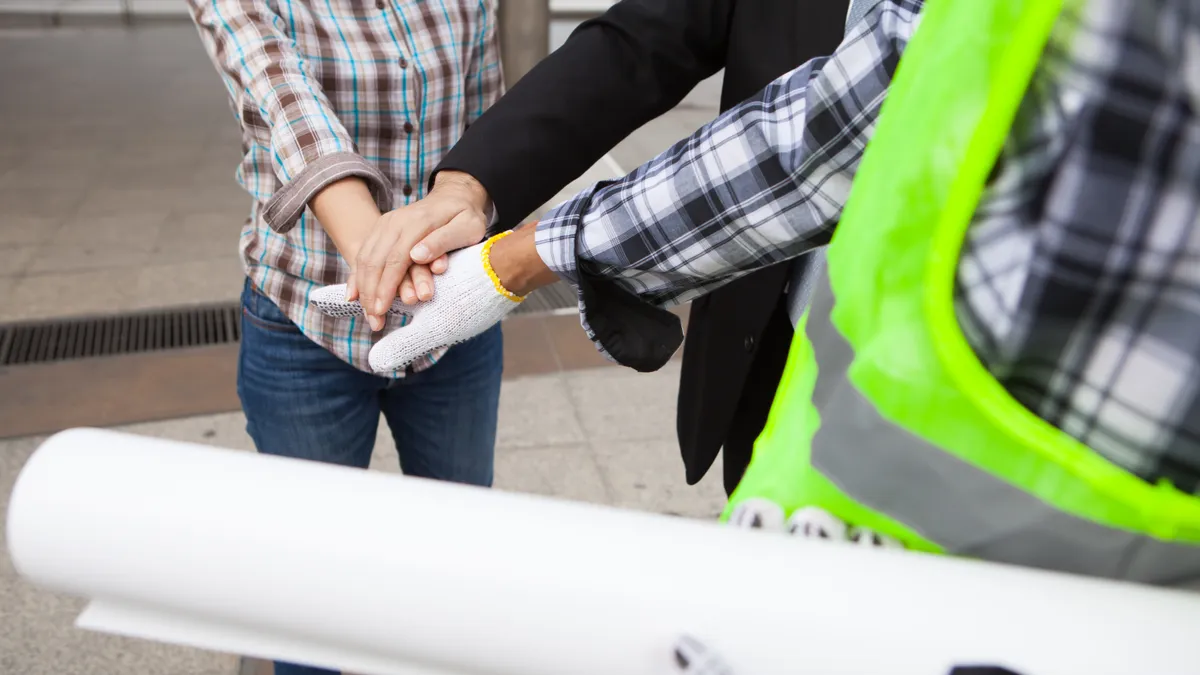Mispronouncing a person’s name is often an inevitability in multicultural communities. But it doesn’t have to be that way.
Carving out a niche in HR tech, modern thought leaders are scheming up innovative ways to eliminate "the ethnic pause" and name-butchering all together. A September 2021 survey, conducted on behalf of software company NameCoach, suggested most people have been tripped up by a co-worker’s name: 74% of respondents admitted to struggling with name pronunciations at work.
On the flip side, 38% of full-time employees surveyed and 39% of part-time employees surveyed said a colleague had mispronounced their name. And according to the data, people teams and corporate leadership are frequently to blame for the strife.
Among part-time respondents, 7% had their name mispronounced by their CEO, 13% had an HR manager or culture officer mispronounce it and 18% said their own department manager messed up their name. Meanwhile, 10% of full-time employees said their CEO messed up their name, with 18% saying that HR was guilty and 21% saying that their department manager had done the same.
"My clients and coworkers stick to calling me by my first name, which is fairly simple. But the one that stands out the most is my college graduation ceremony when the emcee called out my full name on stage to an audience of hundreds. Oh boy," Rohan Chandrashekhar, managing partner at content marketing firm BUZZVALVE, wrote to HR Dive. "That was quite something. He was so bamboozled by my last name and mumbled something that no one could make any sense of."
NameCoach CEO Praveen Shanbhag said a similar experience, which happened at his sister’s graduation, catalyzed him into starting the company. "It was a subtle but real sense of alienation — for me and my family and friends. Certainly, my sister was annoyed by it and disappointed," Shanbhag told HR Dive. "I'd also experienced it myself throughout my life at various points and having people mispronounce my name... [getting] nicknames because they didn't know how to pronounce it or didn't want to pronounce it."
In his time as a Stanford philosophy professor, Shanbhag caught himself hesitating before calling on certain students or using their name — a phenomenon the survey refers to as "the ethnic pause" — despite his own experiences. He said he realized that these moments were "alienating" for his students and conveyed "a lack of respect."
Shanbhag then proceeded to found a company that integrates name pronunciations into software like Salesforce. (LinkedIn rolled out a similar feature in July 2020, which allows users to upload 10-second audio clips of their proper pronunciation.)
Similarly, of the survey respondents who admitted they’d struggled with name pronunciation, 13% didn’t call on someone in a meeting because they didn’t know how to pronounce their name and 16% said they didn’t talk to a co-worker for that same reason. Meanwhile, 22% of respondents said they didn’t introduce someone because they didn’t know how to say their name. More than making people feel neglected, ruckus or fear around a peer’s name can sabotage their advancement.
Niamh McDermott, a journalist, RTÉ and BBC contributor, and "A Drop of Irish" presenter, wrote to HR Dive that she has come to accept that people will butcher her name. While "Niamh" is a popular name in Ireland, "a lot of people have struggled pronouncing it" in the UK, she said. McDermott, who is from Donegal, Ireland, resides in Salford, Manchester, for school.
"A lot of my friends tell me my name looks like a car noise. Also, I struggle to prove that an Uber is for me as the drivers don’t believe my name is pronounced 'neev,'" McDermott said. “I understand that the Irish language is difficult, and don’t take people slagging my name or mispronouncing it too seriously."
Chandrashekhar, who resides in Bangalore, India, told HR Dive he felt similarly. "It happens," he said. He added, "I appreciate people from other cultures trying to pronounce my name correctly or putting in the work to learn how to pronounce it, which only shows that they care." Once he teaches it to people, he said, they get it instantly.
"Chun-druh-shake-her," he explained. "I suppose they’re a bit relieved as well because most people don’t want to embarrass themselves." Upon request, he will write his name out phonetically, which is a solution many have proposed.
For those considering this route, take heart. About half of respondents (48%) to an October 2021 study, conducted by business card company Helloprint said "printing a phonetic pronunciation of your name onto a business card is a great way of aiding B2B communication."
No matter what employers do to spark positive conversations around "difficult-to-pronounce names," going the extra mile here can make all the difference. Putting on his philosopher’s cap, Shanbhag said that beyond practical impact, he also thinks about how these changes can benefit society.
"The way I think about it, we should be modeling and manifesting through values — like respect, inclusion and belonging," Shanbhag said. "Those values in particular are critical to sustaining a dignified, diverse and free society."
Correction: An earlier version of this story misspelled Praveen Shanbhag's name. HR Dive regrets the error.




















